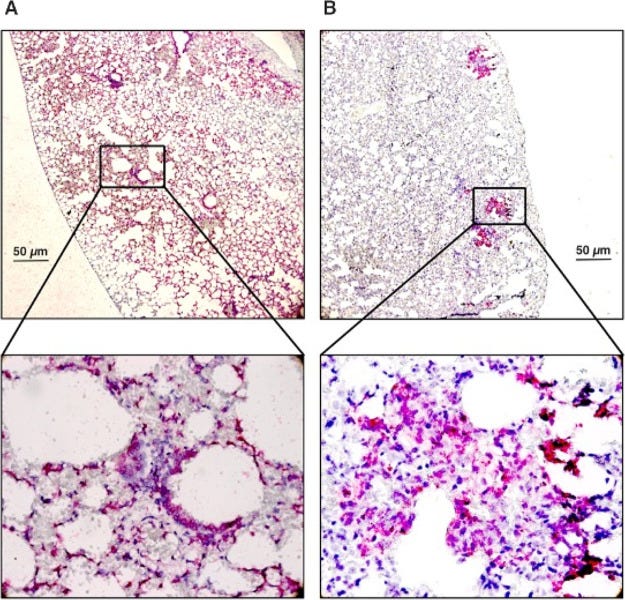Seaweed Lectins: A Potential Treatment for Long Covid and Vaccine Injury
How the nutritional quality of algae could contribute to the improvement of the quality of human life and the increase of a balanced diet if consumed regularly.

“The emergence of the novel coronavirus SARS-CoV-2 in December 2019 has raised awareness about the importance of antiviral agents and therapeutic concepts in controlling the outbreak, as vaccination is not always readily available. Many studies have shown that lectins can prevent the influenza virus from entering host cells, making them a promising candidate. Marine algae are an excellent source of ‘novel’ lectins. The isolation of lectins from marine algae expands the diversity in structure and carbohydrate specificities of lectins isolated from other sources. Marine algal lectins have been reported to have antiviral, antitumor, and antibacterial activity”.
I know that Long Covid has affected a large portion of the population. This is where the illness lingers for weeks and months. I know some of these people. I also know the spike protein from the vaccines has not been received well by some people. There have been severe adverse effects, and many deaths reported through VAERS. I have a friend who experienced facial paralysis one hour following her second injection of the Pfizer vaccine in 2021. Her doctors have been at a loss as to how to treat her symptoms, which continue to this day. Currently, the courts are opening up the possibility for those with adverse reactions to sue for damages.
I received the two Pfizer shots in March 2021. Following that, and reading about the adverse effects and deaths from the vaccines, I began looking for a natural solution for both Long Covid and the adverse reactions to the vaccines, or simply put, how to eliminate the spike protein from the body.
A couple of weeks ago, I was alerted to the following NIH study, ‘A Highly Potent SARS-CoV-2 Blocking Lectin Protein’, published in April. 2022.*
“The COVID-19 (coronavirus disease-19) pandemic affected more than 180 million people around the globe, causing more than five million deaths as of January 2022. SARS-CoV-2 (severe acute respiratory syndrome coronavirus 2), the new coronavirus, has been identified as the primary cause of the infection. The number of vaccinated people is increasing; however, prophylactic drugs are highly demanded to ensure secure social contact”.
“Several drug molecules have been repurposed to fight against SARS-CoV-2, and some of them have been proven effective in preventing hospitalization or ICU admissions. Here, we demonstrated griffithsin (GRFT), a lectin protein, to block the entry of SARS-CoV-2 and its variants, Delta and Omicron, into the Vero E6 cell lines and IFNAR–/– mouse models by attaching to the spike protein of SARS-CoV-2. Given the current mutation frequency of SARS-CoV-2, we believe that GRFT protein-based drugs will have a high impact in preventing the transmission of both the Wuhan strain as well as any other emerging variants, including Delta and Omicron variants, causing the high-speed spread of COVID-19”.
“The ongoing evolution of SARS-CoV-2 poses a significant risk, as mutation accumulation in S protein can lead to immune escape, causing reinfections and making some current therapies and repeated vaccination ineffective”.
“Lectins are a type of non-immune protein or glycoprotein that can bind to carbohydrates or glycol components on cell surfaces reversibly. Lectins are primary metabolites found in marine algae that play a role in physiological functions, including reproduction under normal growth conditions”.
The nutritional quality of algae, due to its high content of protein, minerals, vitamins, dietary fiber, fatty acids, polysaccharides, and bioactive molecules with wide therapeutic potential, could further contribute to the improvement of the quality of human life and the increase of a balanced diet if consumed regularly. Different beneficial effects such as anticancer, antiviral, anticoagulant, hypocholesterolemic, and antioxidant have been demonstrated”.
Potential antiviral inhibitory action of mushroom lectins:
Recently, the antiviral activity of lectins, especially from macrofungi, is an upcoming research area, but its mechanism of action is not well understood. Mushroom lectins could inhibit the viral activity by binding to virus surface glycoprotein, blocking the host receptor, or inhibiting viral polymerase enzyme through binding to its active site. Lectins inhibit the entry of many viruses, for example HIV, by binding with viral envelope glycoproteins thus inhibiting the virus.
Conclusion
It is highly likely that SARS-CoV-2 will continue to mutate throughout the population. The vaccines have not been able to prevent reinfection, even for those vaccinated and boosted. Therefore, new therapeutic agents that have distinct inhibitory action are required until there is complete eradication of SARS-CoV-2. Many of these inhibitory agents are easily obtainable in our foods.
Pauli Halstead
Nevada City
Sources
A Highly Potent SARS-CoV-2 Blocking Lectin Protein
*https://www.ncbi.nlm.nih.gov/pmc/articles/PMC9017247/ - April 2022
Lectins in Mushrooms


